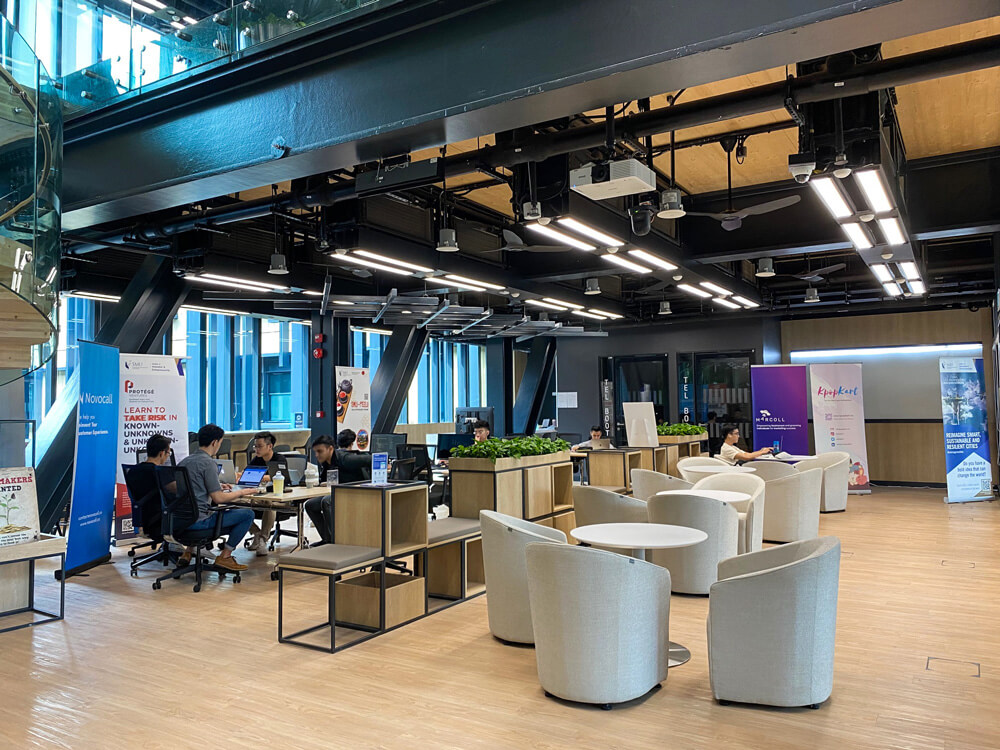By the SMU Social Media Team
In 1959, the Batavia Industrial Center opened in a small city in New York state. Housed in a decommissioned factory, it offered small companies space, equipment, and guidance for growth — a novel business model at the time. One of the earliest tenants there was a hatchery, whose chick-filled coops inspired the Center’s owner to come up with a newfangled term for his newfangled enterprise—business incubator.
While the origin of the world’s first business incubator may be poultry-based, business incubators these days are more typically associated with new economy startups. For instance, the Silicon-Valley-based Y Combinator, which has been called the world’s most famous incubator, was founded in 2005 and helped to hatch tech juggernauts such as homestay platform Airbnb, file-hosting service Dropbox, and payments processor Stripe. This impressive track record, and Y Combinator’s deep bench of influential mentors and alumni, means getting accepted into this incubator is as tough as securing a spot in an elite university.
Y Combinator is hardly the only game in town, however. Today, entrepreneurs looking for funding, mentorship and partnerships can try to get a boost from not just a plethora of incubators, but also accelerators and venture capital firms.

There is considerable overlap between these three types of entities, which all focus on helping startups grow. The terms incubator and accelerator are sometimes used interchangeably, and both can function like venture capital (VC) firms, in that they may offer capital in exchange for equity. “But not all incubators or accelerators provide funding or investment capital,” says Shirley Wong, the Entrepreneur-in-Residence at Singapore Management University’s (SMU) Institute of Innovation and Entrepreneurship (IIE). “And some incubators promise an investment after the incubation programme.”
There is no shortage of incubators and accelerators in Singapore. One key differentiating factor between the two is the maturity of the startup that is seeking support. Incubators tend to look for early-stage companies, while accelerators usually favour more developed startups and offer assistance within a distinct timeframe. VC firms, on the other hand, typically invest in later-stage start-ups that already have a track record of success.
If you’re a budding entrepreneur considering joining an incubator, look for one who truly cares, advises Wong, a veteran technopreneur who is the Immediate Past Chairman of the Singapore Infocomm Technology Federation and the Managing Partner of VC firm TNF Ventures.
“A good incubator supports the development of the founders’ ideas,” she says. “Beyond providing a conducive workspace, it should offer programmes and opportunities that give entrepreneurs the resources to help their startups grow. Key features of a good incubator include regular check-ins to ensure founders are making progress, and open communication lines between founders, mentors and the incubation team. A good incubator also provides an environment where founders are not micromanaged.”
SMU IIE’s incubation programme, for instance, is proudly founder-centric. Named Business Innovations Generator (BIG), this nine-month programme wants candidates who don’t just have innovative ideas, but who also aspire to be changemakers creating positive social impact. Besides providing assistance for grants and funding opportunities, and a coaching-heavy curriculum, the programme also plugs participants into an extensive network of world-class advisors and mentors. Candidates looking for more indepth consultations can also make appointments with BIG’s inhouse Chief Marketing Officer, Chief Technology Officer and Entrepreneur-in-Residence for one-on-one engagements. The programme also offers up a co-working space at a prime downtown location that candidates can tap on—aptly named ‘The Greenhouse’, the facility is located within the University’s newest net zero energy building, SMU Connexion.


The Greenhouse housed within SMU Connexion
Insights from this network can be key to success, says Wong. “SMU BIG invites alumnus founders to sharing sessions, to tell current founders about their startup journeys.” Past speakers have included the founders of healthcare-focused employee benefits platform Mednefits. “They shared how they spent a six-figure sum developing a product, only to find out that no one wanted to use it when they finally tested it. Their experiences presented precious lessons in market validation and testing assumptions, guiding our incubatees to avoid making the same mistakes.”
So when it comes to selecting an incubator, the fit is crucial. Do they have mentors aligned with your needs? Do you feel an affinity for their cultures? Are you going to be able to commit to the requirements of their programmes? Are these incubators experts in the sector you are exploring, with strong track records for guiding such startups to greater heights? “Not all incubators are created equally,” says Wong. “Research the programmes and review the terms of your incubation programme carefully. Find one that fits your needs and startup journey.”
Last but not least, remember that being part of an incubator is not an essential step for an entrepreneur. Like anything else in life, such programmes can have drawbacks. Some shared services provided by other incubators, such as accounting and legal advice, can eat into a startup’s budget, and may not be truly needed by early-stage companies. “Incubators also have KPIs to meet,” Wong points out. “They may require incubatees to perform tasks that become distractions, and that is not useful to the growth of startups.”
Incubators are definitely not a guarantee for success. “Incubation is for teams and founders that need mentorship, seek community, and want to be plugged into the startup ecosystem,” says Wong. “There are founders who have their own mentors with sufficient experience and a clear plan for growth. Also, there are many startups that have succeeded outside of incubation and, conversely, startups that still failed despite being part of an incubator. So incubators are here to support and open up opportunities to founders, but not spoonfeed them. They are not a substitute for the hustling founders need to do themselves.”
Find out more about SMU IIE’s BIG programme here:












2 thoughts on “The Entrepreneurs’ Dilemma: Should Startups Join an Incubator?”
A good site to read about Incubation for new start up or planning to start up new busniess entrepreneur.
New setup is always not easy. I am supportive to have, The new entrepreneurs Joining an Incubator. This allows good guiding to them.